Whitepaper & Video Center
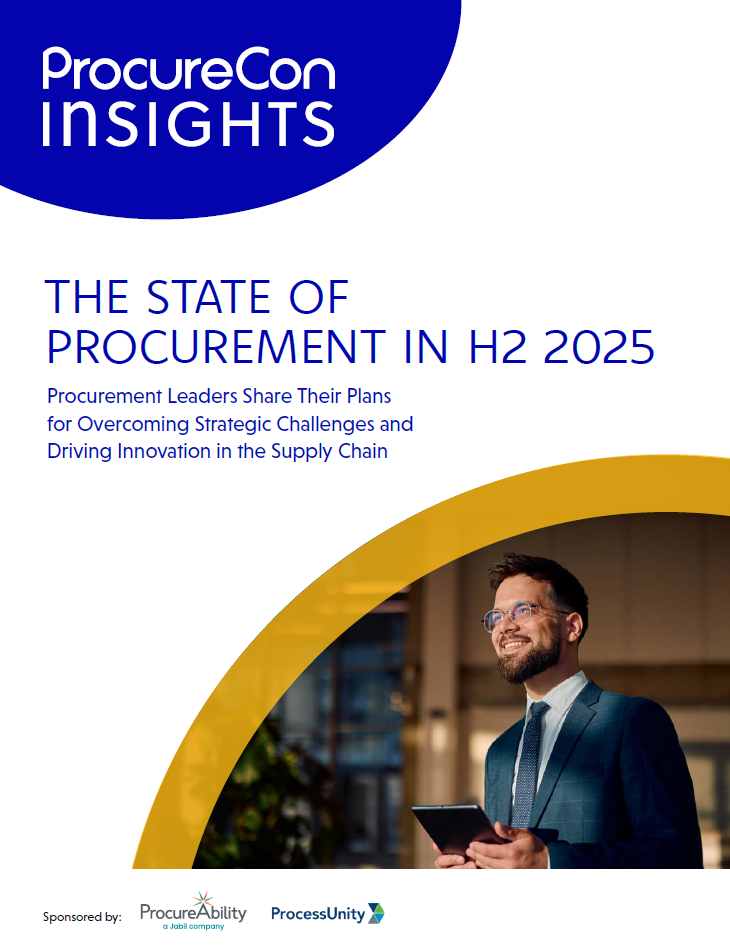
The State of Procurement: Overcoming Strategic Challenges & Driving Innovation
Procurement teams are embracing new technologies and artificial intelligence, but they still have a long way to go before reaching full maturity. Leaders feel satisfied with their core technology tools despite significant challenges, including limited budgets and a lack of strategic alignment within their organizations. The state of procurement over the next 12 months will be decided by stronger supplier relationships, innovative value-added practices, and the improvement of collaboration across functions.

What Happens When Agentic AI Orchestrates Source-to-Pay
Procurement functions today face mounting pressure to accelerate processes while reducing manual work. Agentic AI represents the newest stage in artificial intelligence evolution, moving beyond simple automation to autonomous agents that can reason, make decisions, and act on behalf of procurement professionals. This eBook explores how these intelligent agents are reshaping source-to-pay. Here, readers will learn how these systems are fundamentally different from traditional robotic process automation (RPA) models, as they transform processes through orchestrated workflows that require minimal human intervention.

AI Adoption and Its Transformative Impact on Procurement
Artificial intelligence is moving beyond its initial implementations in the procurement function. Given current levels of investment, it has become a strategic imperative for most organizations. This report examines the current state of AI adoption across organizations and their procurement departments. Notably, it reveals that there is already widespread implementation across the function's key focus areas, including supplier management, spend analysis, and more.
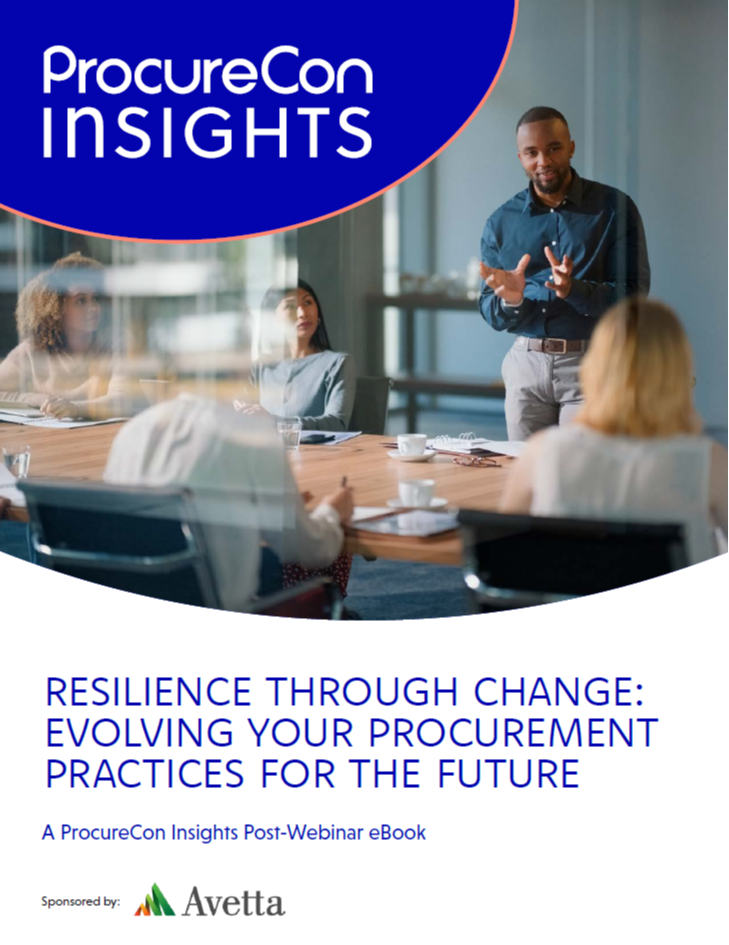
Post-Webinar Resilience Through Change: Evolving Your Procurement Practices for the Future
Procurement organizations face new challenges, where resilience requires balancing proactive risk management, stakeholder collaboration, and the adaptive use of technology. This report is based on a ProcureCon webinar that featured speakers from Avetta and Specialty Dental Brands. It explores how procurement teams can thrive by embedding change management into their DNA, redesigning risk frameworks, and fostering cultures of innovation.

The 2025 ProcureCon CPO-CIO Report
This report examines the evolving collaboration between Chief Procurement Officers (CPOs) and Chief Information Officers (CIOs), as well as their respective departments. The findings reveal that while collaboration between procurement and information technology (IT) departments is generally effective, there are notable gaps in preparedness for advanced technologies like artificial intelligence (AI).
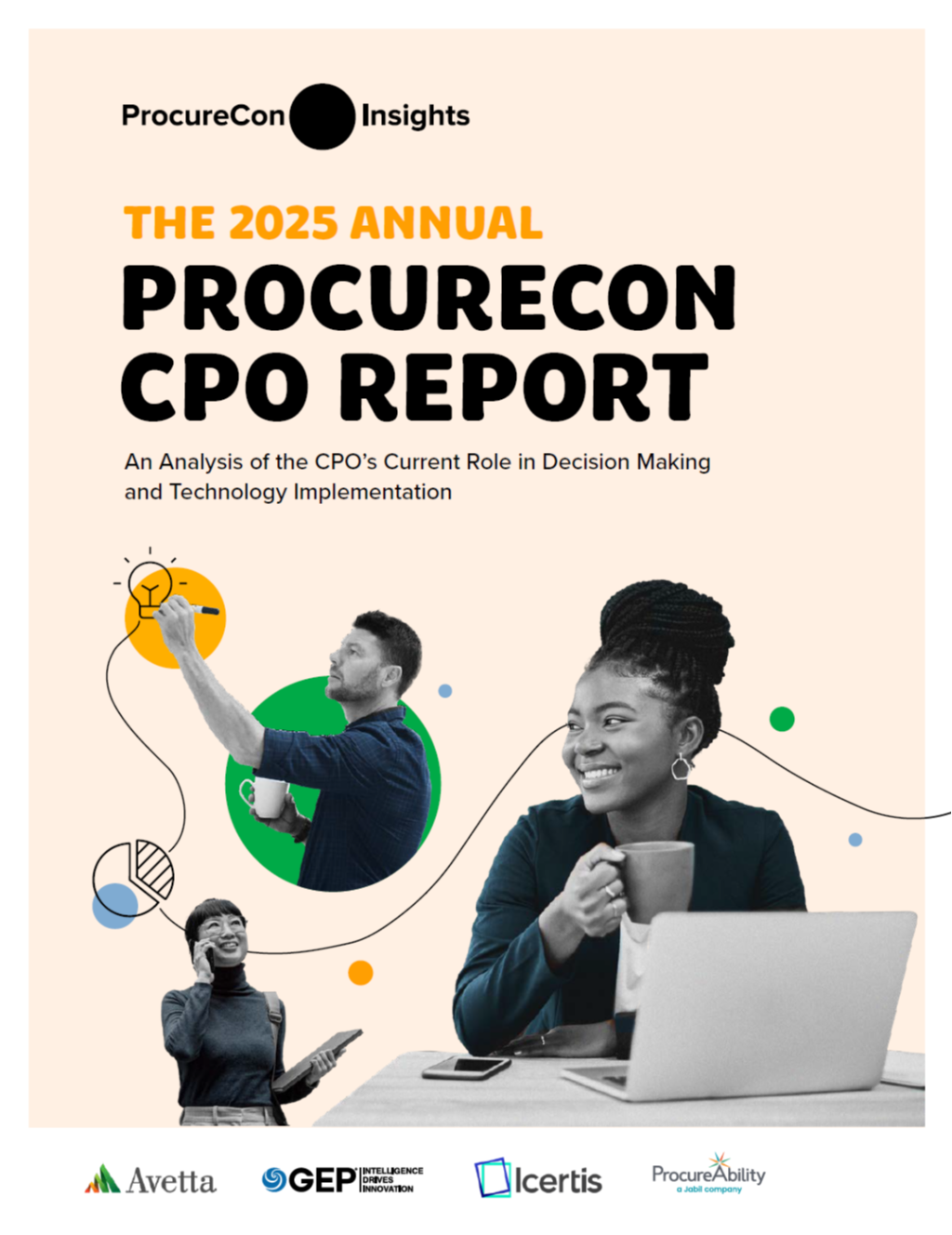
The 2025 Annual ProcureCon CPO Report
This report presents the findings of the ProcureCon 2025 Chief Procurement Officer Survey, which gathered insights from 100 industry leaders across supply chain, procurement, and risk management roles. The survey reveals a shift in the strategic importance of Chief Procurement Officers (CPOs) within organizations, with 53% of respondents reporting that their CPOs play a more substantial role in high-level decision making. This represents a significant increase from last year’s study, in which only 46% of the respondents said the same. Inside, we'll delve into various aspects of the evolving CPO role, including strategic partnerships, technology initiatives, and future challenges, providing a comprehensive outlook on the changing landscape of procurement leadership.

GEP Outline 2025: Trends, Priorities, and Opportunities
Procurement and supply chain leaders face unprecedented challenges and opportunities in 2025. Macroeconomic volatility, AI-driven operational shifts, and evolving regulatory demands are redefining leadership priorities. This report synthesizes insights shared during a March 2025 webinar presented by GEP, outlining actionable strategies to navigate geopolitical risks, harness artificial intelligence, and align procurement value with resilience and sustainability goals. Here, readers will learn about the critical factors shaping the future of supply chain management. They’ll also gain actionable suggestions supported by data-driven analysis and expert recommendations.

Myth vs. Reality: The AI Strategies Every Procurement Leader Needs to Know
Procurement leaders face multiple challenges in their efforts to implement and generate value from AI technology. Data silos, internal skepticism, and the inability to identify specific use cases are some of the most common barriers to adoption. This eBook contains insights from a recent discussion between leaders from Asana and Coupa about practical AI applications in procurement. Here, readers will gain actionable insights into how they can implement AI to improve specific segments of the procurement function and scale their projects to create additional value.
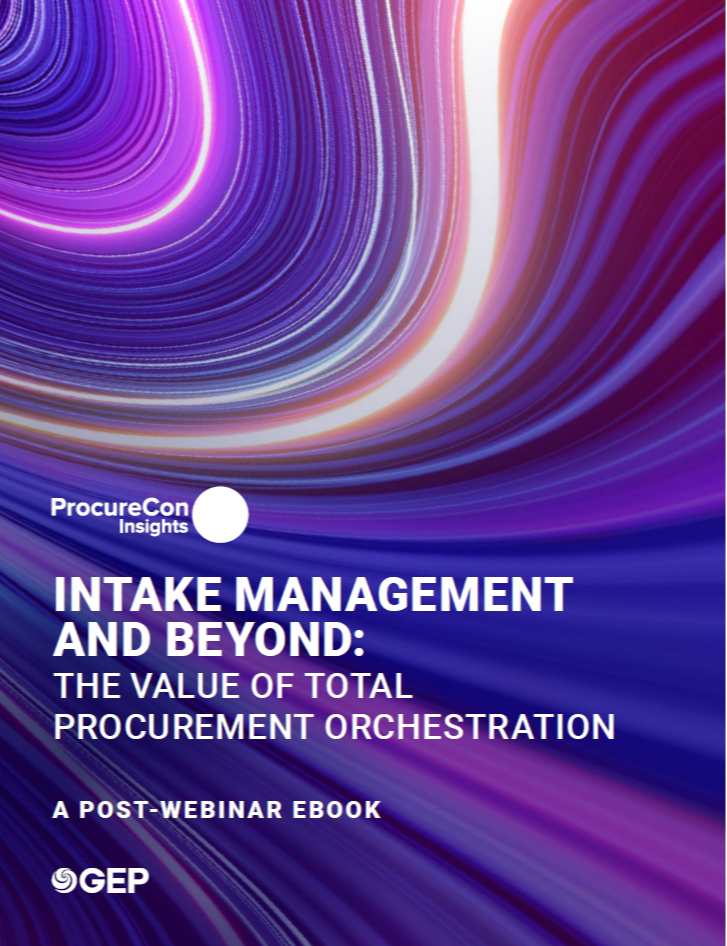
Intake Management and Beyond: The Value of Total Procurement Orchestration Recap
This eBook is based on a recent webinar hosted by GEP about the value of total procurement orchestration and its impact on the future of procurement. Featuring insights and suggestions from leaders at GEP, the eBook explores recent trends in the procurement function, the shift in procurement driven by AI advancements, and the role of procurement orchestration in addressing key challenges. Readers will also learn about GEP’s approach to total procurement orchestration, which spans intake management, end-to-end source to-pay processes, and cross-domain orchestration, enabling procurement to become a strategic enabler of business value.
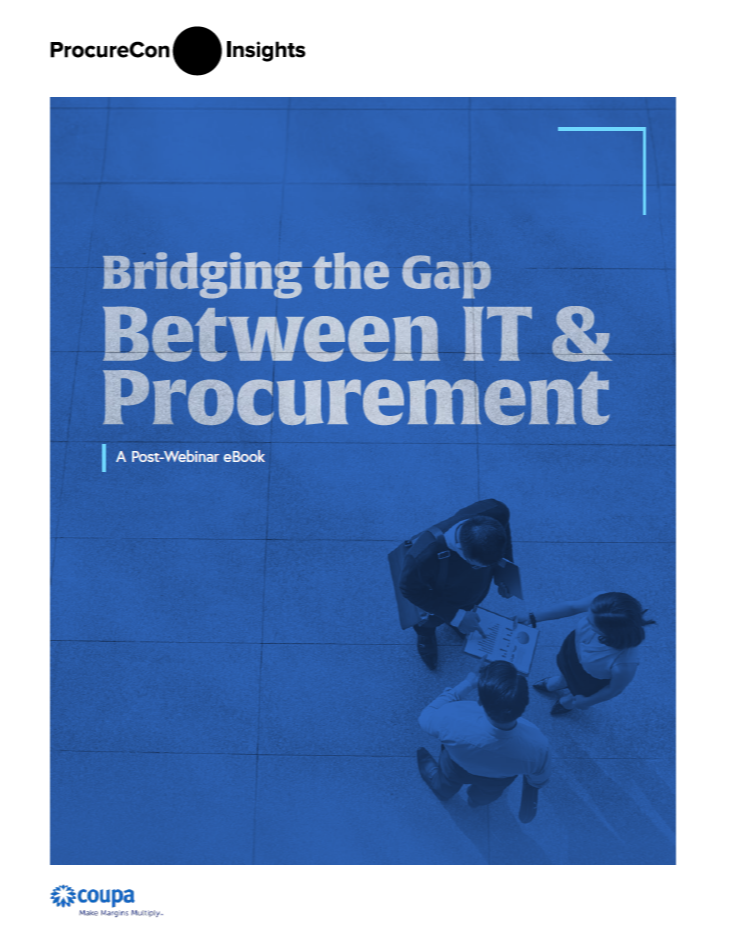
Bridging the Gap Between IT & Procurement
This report features insights from a discussion during a 2024 webinar between Cijo Joseph, Chief Technology and Digital Officer, and Shaun Carroll, Chief Procurement Officer, both from Mitie, a leading UK facilities management company. During the discussion, the leaders noted that Mitie’s data capabilities were made possible through a data lake approach and by their implementation of Coupa spend management software, which helped them eliminate silos and significantly improve decision-making.

Transforming Procurement and Supply Chain Management with Artificial Intelligence
Artificial intelligence has the potential to completely change how procurement teams operate, as it will enable them to streamline processes, remove manual tasks, and generate unprecedented intelligence about the supply chain. Nonetheless, many procurement leaders are still struggling to adopt and implement AI, while others are struggling to keep up with the rapidly maturing technology. This report will explore how effectively procurement teams are currently leveraging AI, as well as their plans for the technology in the future.

ProcureCon Indirect East 2024: After the Event Report
In this report, we highlight the main themes, insights, and takeaways that emerged from the conference. Attendees delved into topics such as digital transformation, strategic sourcing, and supplier diversity, gaining actionable strategies to drive their procurement functions forward. We hope this report serves as a valuable resource for reflecting on the event's success and applying its learnings to your ongoing procurement initiatives.











